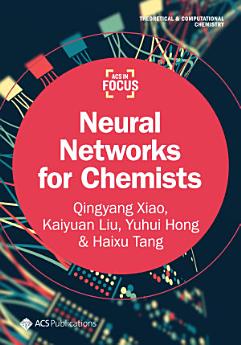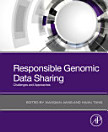Neural Networks for Chemists
Táto e‑kniha
But what exactly are neural networks? They are mathematical models designed to recognize patterns. By learning from data, these networks can make decisions and predictions with remarkable accuracy. However, the true power of neural networks lies in their flexibility and scalability, which allow them to be applied to various tasks, from image recognition to natural language processing and even within biochemistry.
This primer is designed as your first step toward understanding neural networks. Whether you are a student, researcher, or industry professional, it will equip you with the knowledge and tools to begin harnessing their power in your work.
The authors begin by exploring the basic building blocks of neural networks. Next, they cover fully connected networks, the most straightforward and foundational type of neural networks, as well as more advanced network architectures. The authors also include case studies, discuss representation learning, and provide insights into how these tools accelerate scientific discovery and transform a diverse array of fields, such as healthcare, finance, and beyond.
O autorovi
Qingyang Xiao is a Ph.D. student in Computer Science at Indiana University Bloomington, specializing in AI applications in computational omics. He develops machine learning models to analyze protein functions leveraging protein structures and works on efficient methods for proteomics and metabolomics data analysis. Through his research, he aims to advance the understanding of complex biological systems and contribute to the development of computational tools for the life sciences.
Kaiyuan Liu received his Ph.D. in Computer Science from Indiana University Bloomington and is now a deep learning scientist. His research combines deep learning with computational biology, particularly in applying neural networks to the research of peptide tandem mass spectrometry. Kaiyuan’s research spans across peptide identification, spectrum prediction, and spectrum quality analysis. He continues to push the boundaries of computational biology through innovative research and practical applications.
Yuhui Hong is a Ph.D. student in Computer Science at Indiana University Bloomington. Her research focuses on the intersection of deep learning and bioinformatics, particularly on using deep learning for small molecule identification through mass spectrometry. Her work aims to enhance the accuracy and efficiency of molecular analysis, contributing to advancements in both computational and biological sciences.
Haixu Tang is a Professor in Computer Science at Indiana University Bloomington. His research interests include computational biology, AI/machine learning, and privacy-enhancing technologies. More recently, he conducted research on machine learning for computational mass spectrometry, and privacy and safety issues in generative AI models.











